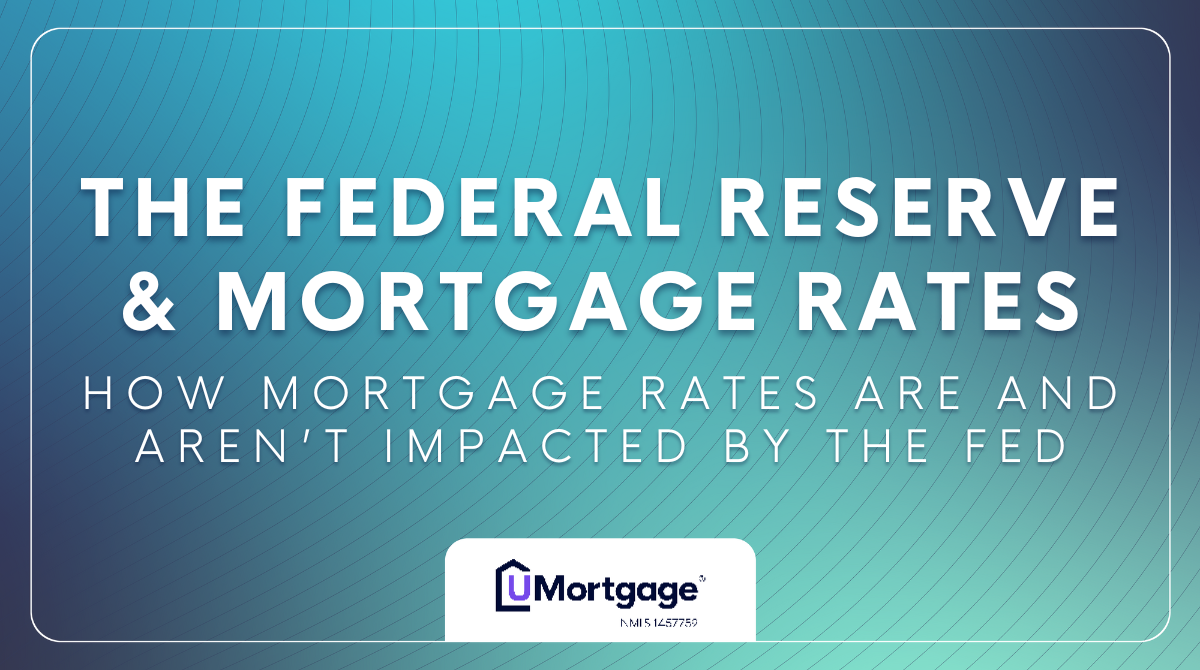How the Federal Reserve Impacts Mortgage Rates (And How It Doesn't)
Published: August 13, 2025
Updated: August 14, 2025

How the Federal Reserve Impacts Mortgage Rates (And How It Doesn't)
If you’ve been watching the news lately, you’ve probably seen a lot of headlines about the Federal Reserve and interest rates. And if you're a homebuyer or a real estate agent working with buyers, you might wonder: Does the Federal Reserve control mortgage rates?
It’s a great question. And the short answer is: Not necessarily.
The longer answer is a bit more nuanced because while the Fed does play an important role in the economy, it doesn't directly control mortgage rates.
What Is the Federal Reserve and the Federal Funds Rate?
The Federal Reserve, often referred to simply as the Fed, is the central bank of the United States. Its primary job is to keep the economy healthy by keeping inflation in check, supporting the labor economy, and promoting stable & sustainable economic growth.
One of the main tools the Fed uses to manage the economy is the Federal Funds Rate.
This is the interest rate banks charge one another for overnight loans. While consumers don’t pay this rate directly, it has a ripple effect across the economy, influencing rates on credit cards, auto loans, and savings accounts.
How the Federal Funds Rate Influences the Economy
When the Fed raises the Federal Funds Rate, it becomes more expensive for banks to borrow money. That tends to result in higher borrowing costs for consumers and businesses in an attempt to slow down inflation and prevent the economy from overheating.
When the Fed lowers the rate, borrowing becomes cheaper. This encourages more spending and investment, often a strategy used during economic slowdowns or recessions.
Important distinction: The Federal Funds Rate influences the economy, but it does not directly control mortgage rates.
Why Mortgage Rates Don’t Always Follow the Fed
Here’s where a lot of confusion begins.
Many people assume that when the Fed raises interest rates, mortgage rates automatically rise too. But that’s not how it works.
Mortgage rates are driven by a different set of economic factors, mainly the bond market. Specifically, rates are closely tied to the 10-year Treasury yield and the performance of mortgage-backed securities (MBS).
Investors who buy these securities care most about the labor market, inflation, the long-term economic outlook, and market stability/instability
If inflation is rising or expected to rise, mortgage rates tend to increase. If economic conditions appear weak or uncertain, rates can fall, even if the Fed is raising the Federal Funds Rate.
In fact, mortgage rates often move in anticipation of what the Fed might do, not just in response to what it has done. The markets are always looking ahead.
What Really Drives Mortgage Rates?
Here’s a quick snapshot of the major factors that impact mortgage rates:
- Inflation: Higher inflation usually = higher mortgage rates.
- Economic Growth: A strong economy can lead to higher rates.
- Global Events: Uncertainty (like geopolitical conflict or pandemics) can drive rates lower.
- Bond Market Demand: More demand for mortgage bonds often = lower mortgage rates.
In other words, mortgage rates are influenced by a wide range of factors and are always forward-looking.
Want more in-depth analysis of the housing market? Check out our weekly Housing Market Update blog.
How Homebuyers and Real Estate Can Navigate the Market
For homebuyers and the real estate agents supporting them, the key takeaway is this: Don’t assume that a Fed rate cut means mortgage rates are going down.
In some cases, mortgage rates don’t move much on the day that the Fed cuts rates. Most of the time, they will drop in the lead-up to a Fed Meeting if a rate cut is expected. Other times, they might drop after a Fed announcement, depending on how markets interpret the economic outlook.
If you’re considering buying a home or are an agent for a hesitant buyer, here’s how you should navigate periods of market instability:
- Focus on personal goals and timing, rather than trying to time the market.
- Work with a knowledgeable mortgage professional who can explain how market shifts impact your unique situation.
- Make informed decisions based on the bigger picture, not just headlines.
Whether you're buying, selling, or considering a refinance, UMortgage Loan Originators are here to help you navigate the market with confidence and leverage homeownership to build wealth.
If you’re curious about your homebuying or refinance options and want expert guidance, fill out this form to get connected with a UMortgage Loan Originator in your area!
